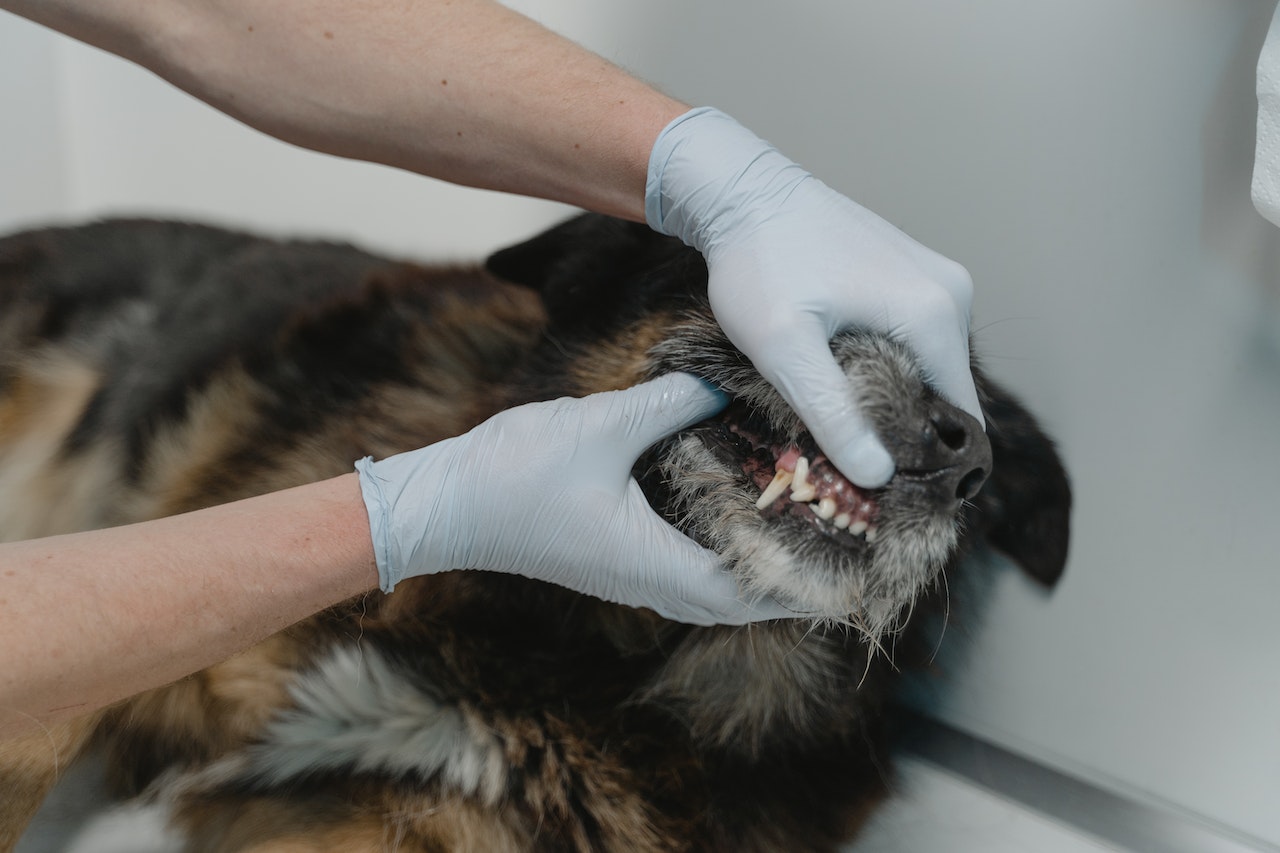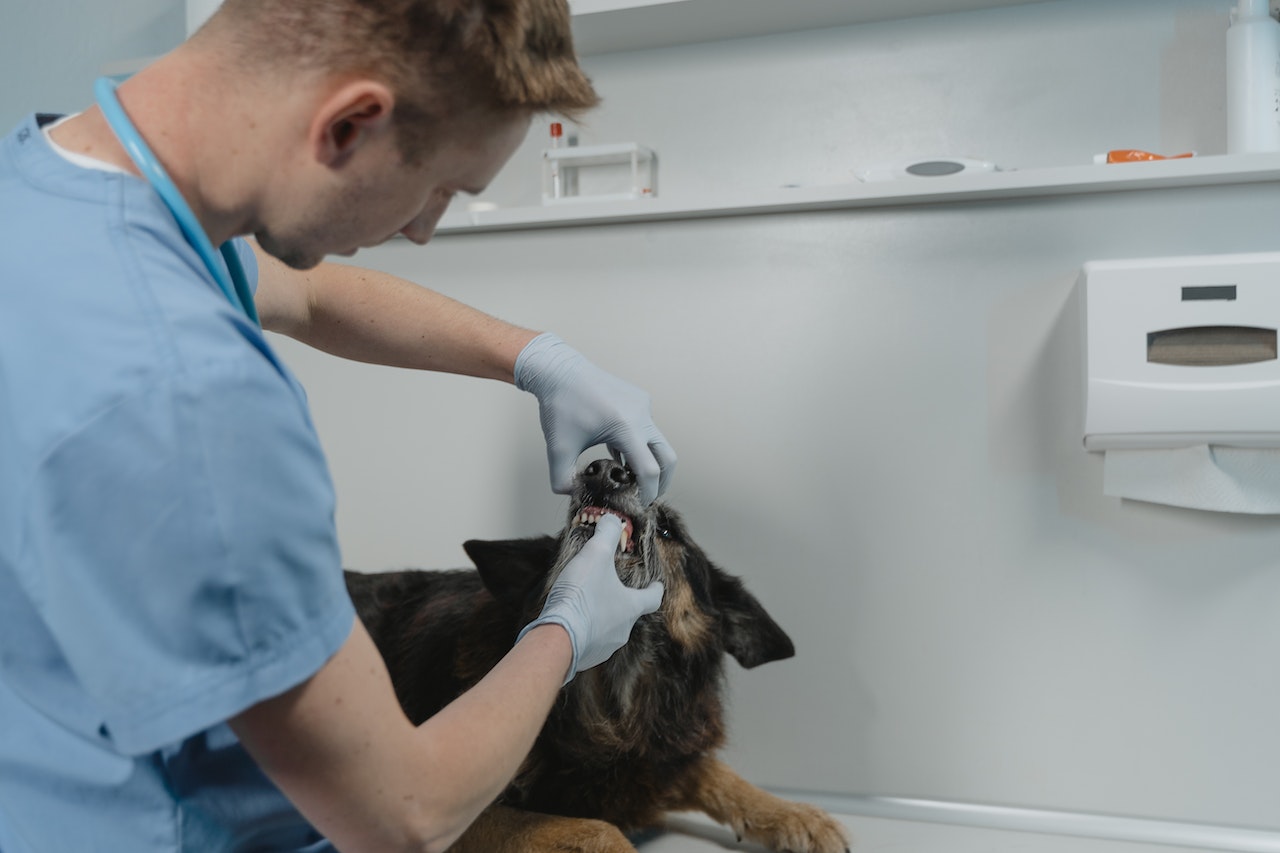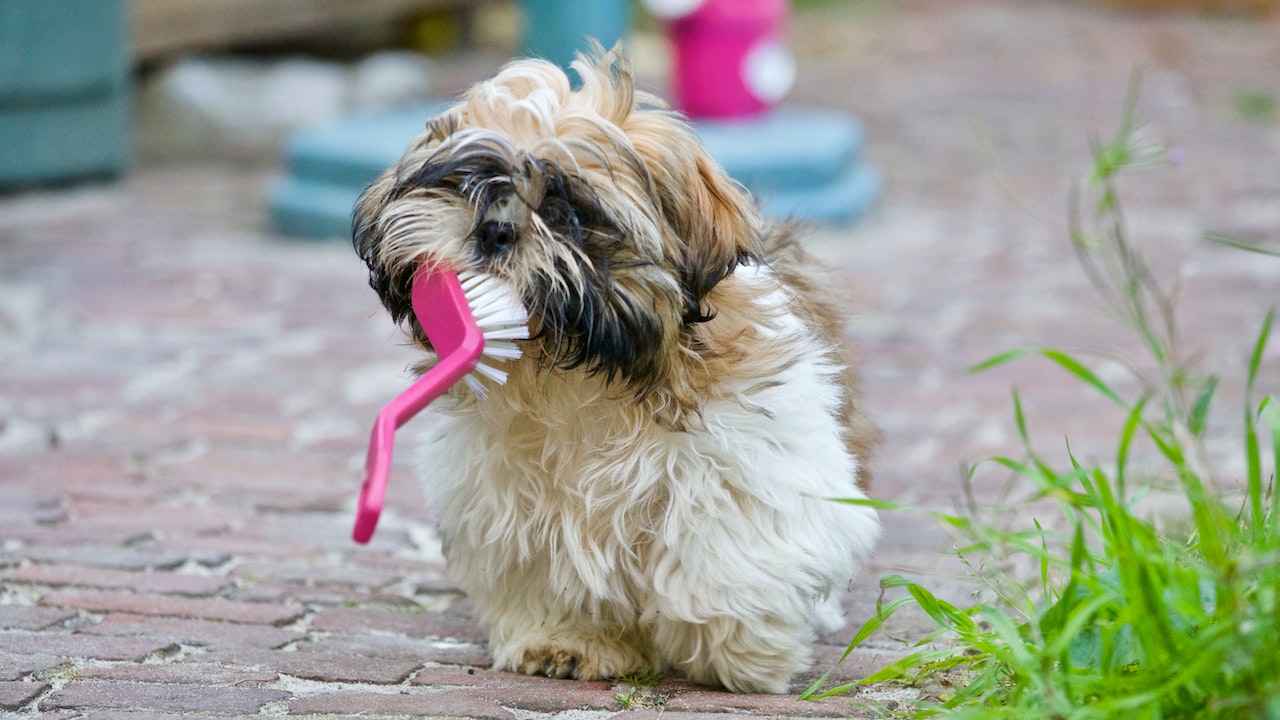
As early as two weeks of age, puppies will start receiving their baby teeth, and by the time they are four to six months old, those teeth will have fallen out. The baby teeth will fall out when the permanent teeth begin to erupt. Your dog may need to have a baby tooth pulled if it hasn’t been pushed out by the time the adult teeth appear.
In your role as a pet parent, you should pay close attention to your dog’s oral hygiene. Knowing the causes of foul breath in dogs and how their teeth should grow will help you take better care of your pet. When puppies first start teething and dropping their baby teeth, this is crucial. At what age do pups typically lose their puppy teeth, and how should this be handled? In this essay, we will explain all you need to know.
Teething Schedule for Puppies

Growing a puppy is a lot like raising a kid in that it requires knowledge of the stages of development and the factors that might influence healthy growth. When your puppy’s baby teeth start coming out and they start chewing on items, you should make sure you have everything they need for their development. If you’ve ever wondered, “When do puppy teeth come out?” here’s your answer in detail. What you can do to prevent puppy biting and other frequent issues will also be covered.
2 – 4 weeks
Your puppy’s baby teeth will emerge from the gums between the ages of two and four weeks. The front teeth are usually the first to erupt, followed by the canine teeth. During this time, the premolars, or the teeth that come in between the canine teeth and the molars, will also begin to erupt.
Puppies often spend their first two to four weeks of life feeding from their mothers. For this reason, most breeders will not release a puppy to you until it is at least eight weeks old. While it’s not always feasible, it’s still important to keep an eye on your puppy if you want to use a syringe or bottle to feed it in the days and weeks after its birth.
5 – 6 weeks
By the time a puppy is five or six weeks old, all of its primary teeth should have erupted.
It’s important to remember that some puppies may still be missing some or all of their baby teeth at this point. But if your puppy seems to be in pain or discomfort, you should speak to your doctor about their teeth to make sure nothing is out of the norm.
Your dog can now eat soft puppy food since it has lost its newborn teeth. If your dog isn’t eating because of teething, try feeding it some soft food. It is recommended that you consult your veterinarian before feeding your puppy soft food, especially if this is your first time rearing a puppy.
12 to 16 weeks
Pups may leave their moms around eight weeks of age, but most breeders wait until the puppies are a little older before letting them go to their new homes. Many breeders consider a puppy ready for adoption at 12 weeks old.
Between the ages of 12 and 16 weeks, pups begin to lose their teeth, so don’t be surprised if you come across a few scattered throughout the home.
Discovering dog teeth the size of grains of rice is a perfectly common occurrence throughout the canine dental growth process.
Making sure your dog has a safe toy to gnaw on as its teeth start to fall out is essential. Puppies often resort to gnawing to alleviate the discomfort of teething, but they shouldn’t be given access to anything toxic. Look for puppy-friendly chew toys, which are made with softer materials.
It’s also a good idea to routinely pet your puppy’s teeth and the inside of their mouth at this period. In the long run, this may help your dog feel more comfortable during dental care procedures like brushing and cleaning.
Aged over 6 months
All of your puppy’s baby teeth should have fallen out and been replaced by adult teeth by the time he or she is around six months old. If your dog is like others, it will take a little longer than six months for all of its adult teeth to sprout, but once they do, your pet will have a full set of 42 pearly whites.
Make sure there are no baby teeth remaining in your puppy’s mouth if he or she is six months or older. Dogs usually lose their baby teeth on their own when their adult teeth come in, but if your puppies are stubborn and won’t budge, you may need to take him to the doctor to have them extracted.
Dental hygiene is very important now that your dog has adult teeth. Make sure you clean your dog’s teeth on a regular basis to reduce the risk of tartar formation, dog breath, and other dental issues. At least twice a week, you should give your dog good teeth brushing.
Dog Tooth Loss: What to Do
Knowing when pups start losing their baby teeth will allow you to better assist them as they go through this transition. It is important to provide your dog with safe toys when they begin teething. Puppies need toys that are soft enough to comfort them yet sturdy enough to last. Since you’ll eventually need to brush your puppy’s teeth and take them in for professional dental cleanings, you should also begin desensitizing them to the process by touching the inside of their mouth.
If you see your puppy nibbling on anything it shouldn’t, intervene and redirect its attention. Puppy teeth are quite sharp, so it’s important to supervise playtime and make sure your dog is only biting on appropriate items. When it comes time to teach your puppy to use the bathroom in the designated area, a positive reinforcement history might come in handy.
In the event that any of your puppy’s adult teeth have not yet erupted, you should consult with your veterinarian about having the remaining baby teeth removed.
Lost puppy teeth might cause serious dental problems

Generally speaking, when a puppy loses its baby teeth, it won’t have any problems with its teeth or gums. Adult teeth normally come in robust and healthy when puppies lose their baby teeth. Baby teeth retention, on the other hand, is a known risk factor for issues including malocclusion, tooth pain, and discomfort.
Sometimes, even after their adult teeth have emerged, pups will still have a few of their milk teeth. If your puppy still has baby teeth beyond the age of six or eight months, you should take them to the veterinarian to get them extracted to prevent future dental problems.
The good news is that taking your dog to the clinic to get its baby teeth out is a rather straightforward process. It’s important to monitor your dog closely when they’re teething to make sure the adult teeth are coming in properly and the baby teeth are dropping out.
Questions About Your Dog or Puppy’s Teeth
When do puppies usually lose their puppy teeth?
Many breeders will not release a puppy to a new family until after the dog has lost all of its baby teeth, which usually occurs at about 12 weeks of age. It’s important to provide your puppy with safe toys as they start cutting their adult teeth. You should only give your puppy soft chew toys and keep it away from anything hard that might crack its teeth. You should take your puppy to the vet often at this time to make sure he or she is shedding their baby teeth appropriately.
When do puppies start to lose their baby teeth?
In most cases, the incisors are the first teeth to fall out of a puppy. Canines often follow the incisors in falling out somewhere between 12 and 16 weeks of age. Puppy premolars normally fall out at about 24 weeks of age. At the eight-month mark, your puppy should have a full complement of 42 teeth. Be careful to take your puppy in for checkups at the vet on a regular basis so they can monitor the growth and development of your puppy’s teeth.
When a dog loses its baby teeth, what should you expect?
Puppy teething is characterized by excessive chewing, which is the primary cause for concern. Puppies, like human newborns, can wreak a lot of damage when they gnaw on items while they are teething.
Make sure your dog has plenty of safe chew toys after they start losing their baby teeth. Get your puppy a couple of good, soft toys to munch on instead of harsh chew toys or household items that might potentially injure their teeth.
In Conclusion
The process of tooth development in puppies may take several weeks, but by the time they are six to eight months old, they have typically lost all of their baby teeth. In order to help a child through the teething phase, a soft chew toy should be provided. All of your puppy’s adult teeth should be in by the time you take him or her to the vet to get the remaining baby teeth removed. In order to ensure that your puppy is shedding their milk teeth and developing their permanent set of teeth normally, it is important to consult with your veterinarian.